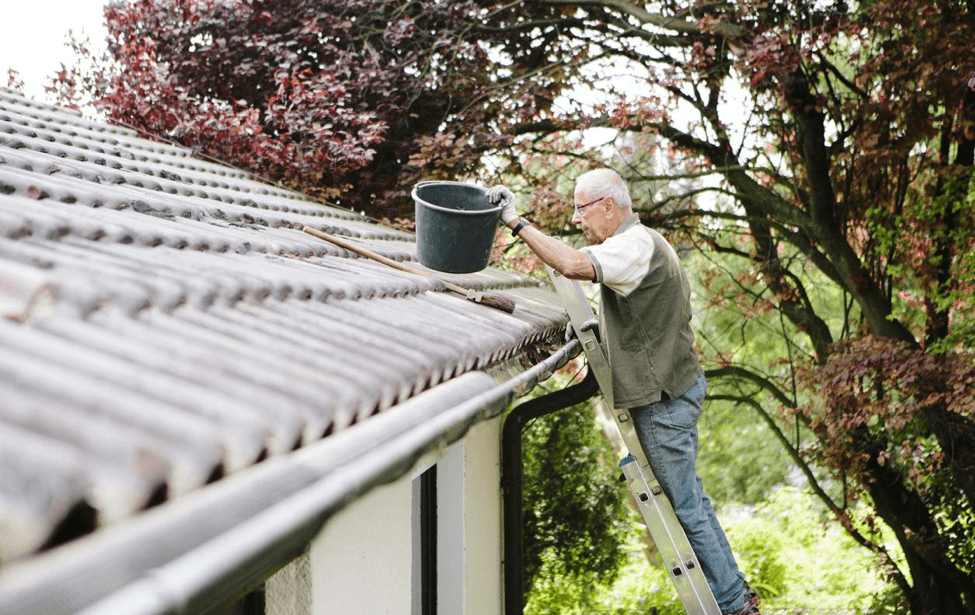Spring brings warmer weather, and outdoor plans and activities. Many enjoy the spring breeze while peacefully sitting on a deck or patio.
Not many think about checking on their roof prior to the next Spring storm. By following these Spring roof maintenance tips, you will show your roof some love while preventing issues down the road.
- Get a Roof Inspection
According to the National Roofing Contractor’s Association, roofs should be inspected at least twice a year – once in the fall to check on any damage the summer sun and storms may have caused, and once in the spring to see if winter weather took its toll on your roof.
Checks should be made to ensure shingles, gutters, flashing, and protrusions are important for maintaining good roof health. Once these items start to wear down, costly repairs begin to build. If issues are noticed, contact a licensed roofer to make the repairs before more damage is caused by letting these issues go.
- Keep it Clean
Beautiful spring flowers, buds and leaves can also cause your roof system issues. Taking the time to remove debris will ensure your roof health. Ensure gutters are cleaned and hail damage is reported to your roofing experts or insurance company.
- Let your Home Breathe
Inadequate ventilation can cause mold, ice damage, decrease your roofs lifespan and a host of issues with your roof.
The Federal Housing Administration recommends at least 1 square foot of ventilation per 300 square feet of attic space to properly ventilate your home. Most homes do not meet this standard of ventilation. You should also check your exhaust and intake vents to make sure they’re free and clear of all leaves, sticks, and seeds.
- Make Sure You’re Covered
Homeowners are encouraged to check their home insurance policies to ensure they cover roof damage and/or flood damage. In the event of damage, knowing your policy will assist in faster repairs and appropriate claim service.
If your roof has not been inspected within the last five years, you are overdue. inspections from licensed professionals can ensure a thorough inspection, explain points you should be looking for, and provide necessary care if small issues are observed.
An ounce of prevention prevents gallons of rainwater.

